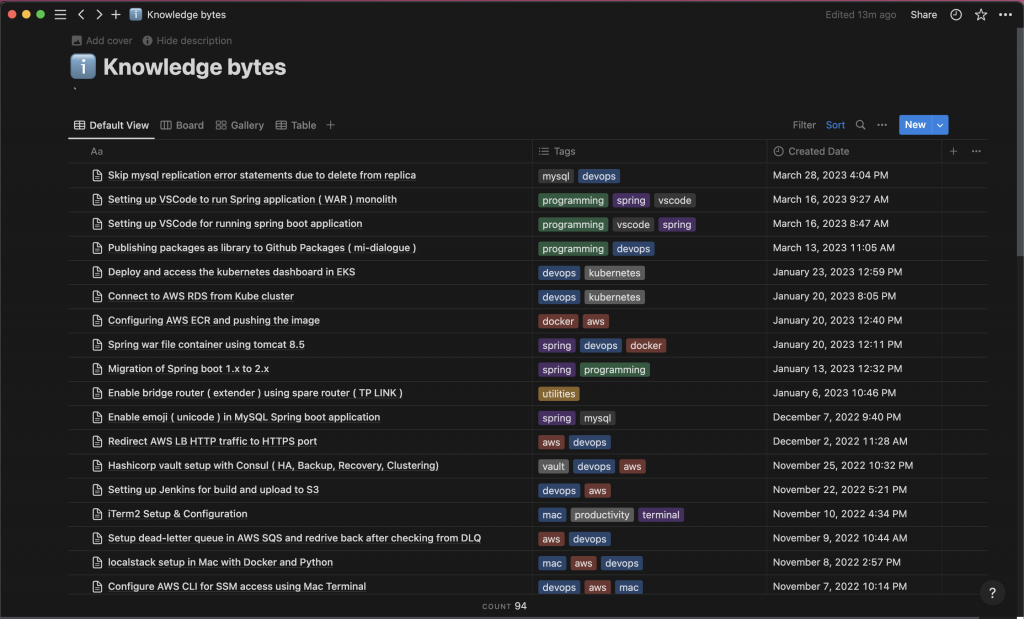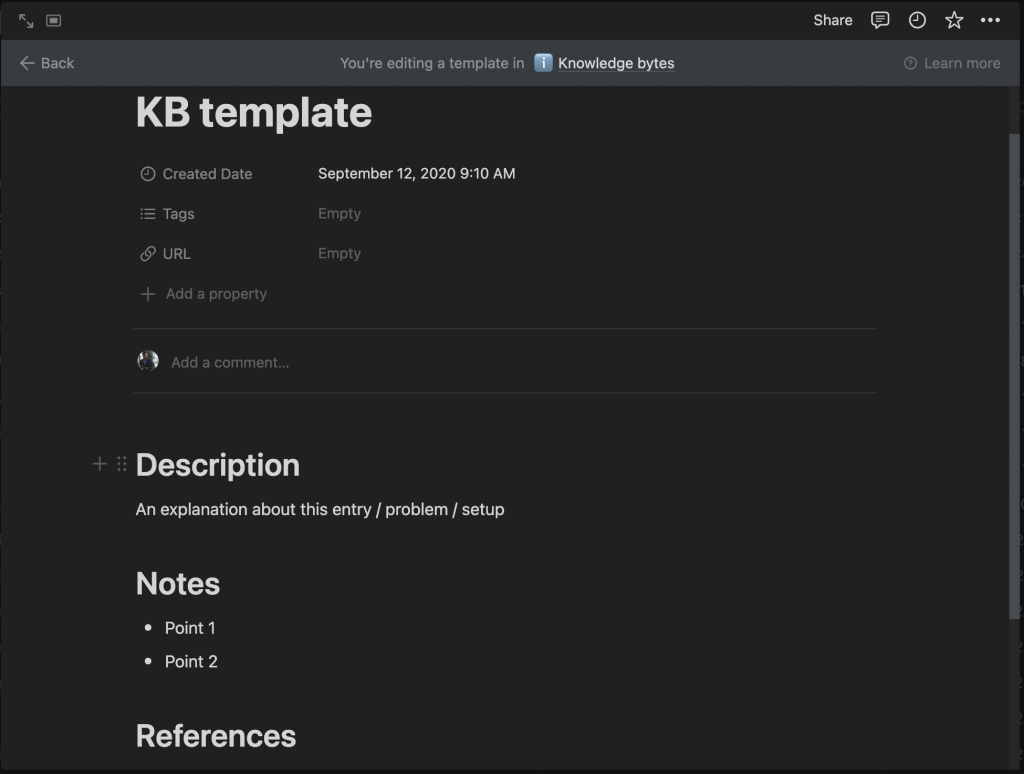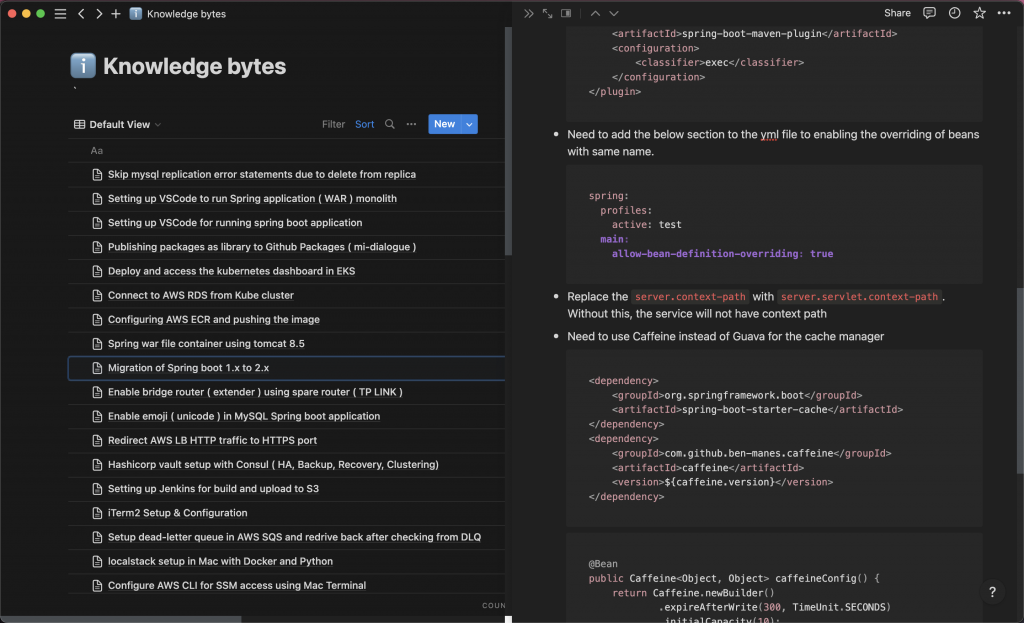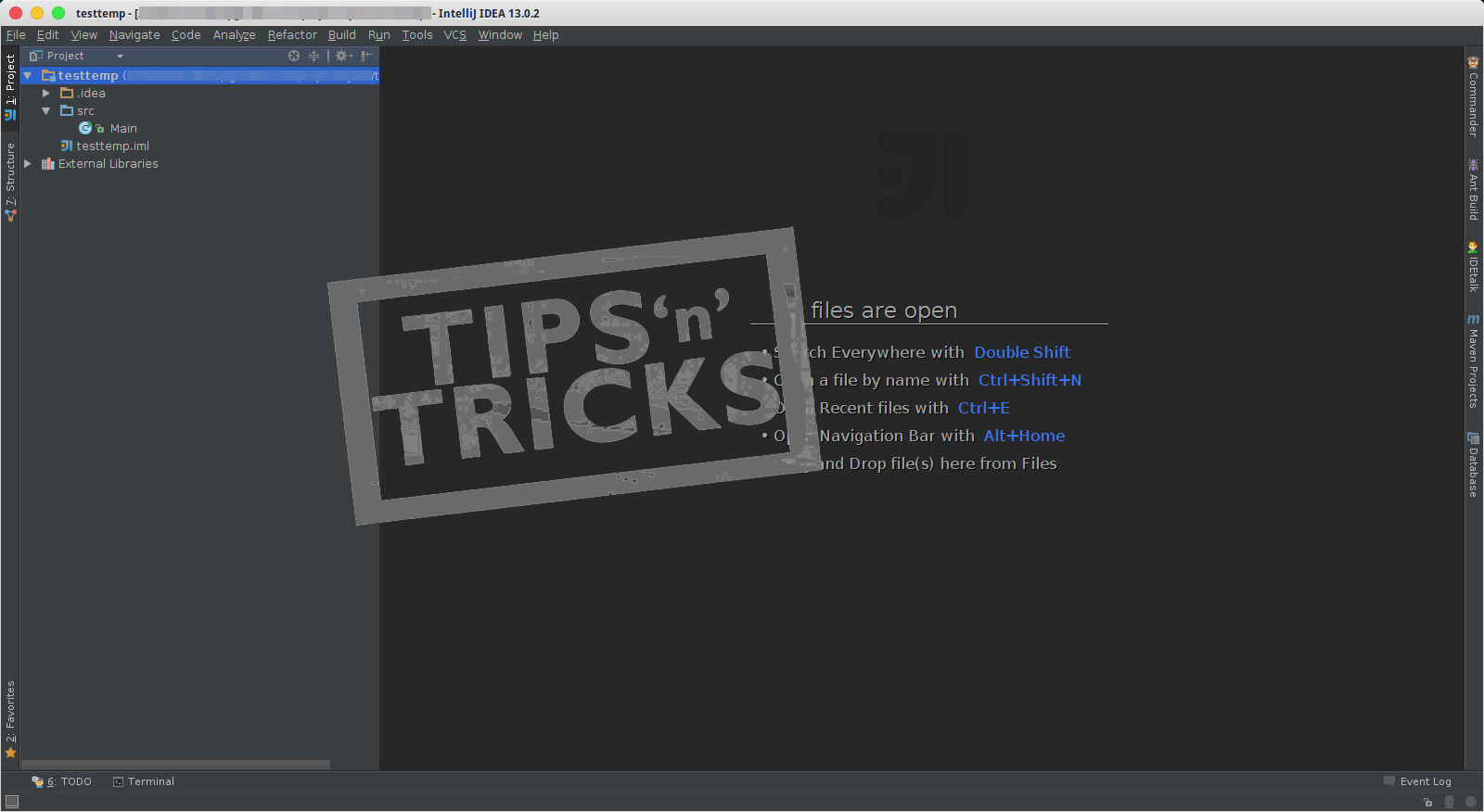Supercharge Your Developer Journey with a Personal Knowledge Base
We all know that as developers, we have a tendency to despise documentation. Given the choice, we’d rather write a thousand lines of code than jot down ten lines of explanation. However, as we grow more experienced, we start realising the true value of documentation and the time it can save for ourselves and others in the future.
When we encounter a specific problem, feature, or bug during our work, it’s quite common for us to enter a research mode. In the past, this was known as “Googling mode,” but lately, it has also involved seeking assistance from tools like Chat GPT. We end up with numerous open tabs, including Stack Overflow threads, documentation for various libraries, and ongoing Chat GPT conversations. Once we finally discover a solution, which often involves combining information from multiple sources, we unceremoniously close all those tabs, enjoying the bliss of problem-solving.
However, six months later, when we encounter a similar issue, we find ourselves starting from scratch because our brains fail to recall what we did effectively half a year ago. This is where the importance of a knowledge base becomes apparent. Even if we spent two days researching and solving the problem, investing just 20 minutes in documenting our approach along with relevant references would make it a whole lot easier to revisit it later (provided we keep this document in an easily accessible location, of course!).
You can also see my personal knowledge base setup in the below section. But, before that, let’s understand the benefits of a knowledge base.
Benefits of a knowledge base
Let’s explore the benefits of having a personal knowledge base, which requires some time and effort to build.
Documenting specific setup-related issues:
Sometimes the problems we face are unique to our own setup and may not have direct solutions readily available on platforms like Stack Overflow. That’s why it’s crucial to document the steps taken to resolve such issues in our specific setup. This documentation becomes a lifesaver when we need to refer back to it later.
Offloading memory burden:
Our brains are designed to process information, not store and retrieve it on demand. By maintaining a personal knowledge base, we alleviate the burden on our memory for storing items that aren’t immediately relevant. Instead, we can rely on our knowledge base to retrieve the information when needed.
Efficiently tackling setup-specific issues:
As mentioned before, some problems we encounter are unique to our particular setup. These issues may not have direct solutions available on platforms like Stack Overflow. By documenting them in our knowledge base, we ensure that we have a reference tailored to our specific circumstances.
Time-saving research:
Having a knowledge base can save a significant amount of time. Instead of starting the research process from scratch whenever a similar problem arises, we can simply refer to our existing documentation. This cuts down on repetitive research efforts and allows us to solve problems more efficiently.
Enhanced understanding:
When documenting in our knowledge base, we have the opportunity to explain things in our own words. This process helps us solidify our understanding of the topic. Later, when we revisit our documentation, we can grasp the concepts better because we expressed them in a way that resonates with us.
Sharing expertise:
Your knowledge base can be shared with peers facing similar issues or problems in a similar setup. Instead of individually explaining solutions from memory, you can provide them with your well-documented knowledge base. This sharing not only helps others but also strengthens the collaborative spirit within your peer group.
By considering these benefits, we can see how investing the time and effort into building a personal knowledge base can greatly assist us in our development endeavours.
My Knowledge base setup
Now, let’s dive into the setup of my personal knowledge base. Please keep in mind that you’re not bound to follow my exact setup. Feel free to choose a setup that suits you best.
In my case, I’ve set up my knowledge base using Notion. You’ve probably heard of Notion before, as it’s a popular tool for organising information. However, it’s important to note that you can use any tool you feel comfortable with, such as Google Sheets or Google Drive, as long as you can easily search for specific documents. You can watch my full setup in the below YouTube video:
I’ve created a dedicated database within Notion specifically for my knowledge base. Whenever I want to add an entry, I simply navigate to this knowledge base database and input all the relevant details, along with appropriate tags. Notion provides excellent support for formatting, which allows me to structure my documents in a way that suits my preferences. It’s incredibly handy for code formatting, bookmarking, and referencing other knowledge base entries within a document.
Below, you can see a screenshot of my Notion knowledge base database. It contains numerous entries categorized by relevant tags.

To make the process even easier, I’ve also created a template within Notion for each knowledge base entry. It’s a basic template that includes key points, references, and other necessary information for every entry. Here’s my template screenshot:

When creating a knowledge base entry, I start by providing details about the issue or description that I want to explain in the entry. Then, I include the necessary information, such as performance tips, step-by-step instructions, or tutorials. I take advantage of formatting options to highlight important parts and format code snippets if coding is involved. Lastly, I save bookmarks for the research sources I used in the reference section, making it easy to refer back to them later. Here’s an example of a knowledge base entry related to coding:

As you can see, I strive to include all the information needed to replicate a fix or perform a specific setup. If I ever need to find something similar in the future, I can simply refer back to my knowledge base and search based on tags or browse through the entries.

By adopting a similar approach and customizing it to your needs, you can create a well-organized and easily accessible knowledge base that will be a valuable resource for your development journey.
Conclusion
In conclusion, building a personal knowledge base can be extremely beneficial, not just for developers but for anyone who wants to improve their productivity and efficiency.
By investing some time and effort into building a friendly and comprehensive knowledge base, you’ll reap the long-term benefits. No more wasting hours on repetitive research or struggling to recall past solutions. With your knowledge base at your fingertips, you’ll become a more efficient problem-solver, saving valuable time and energy. So go ahead, start documenting and enjoy the rewards of your knowledge base journey!.





